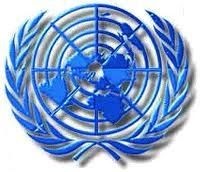BISHKEK (TCA) — On June 25, the United Nations’ MAPS mission arrived in Kyrgyzstan for a week-long visit to support the Government of the Kyrgyz Republic in adopting the Sustainable Development Goals (SDGs) to the country’s development needs and priorities through mainstreaming, acceleration, and policy support (MAPS).
From the 25th to 29th of June the MAPS mission, led by Mr. George Bouma, Regional Team Leader for the Sustainable Development Cluster from UNDP Istanbul Hub, will conduct a series of joint meetings and seminars with the representatives of relevant government departments, private sector, and civil society to make available a set of tools, guidance and expertise on effective and coherent implementation of the 2030 Agenda.
The mission includes thematic and sector experts as determined by the UN Country Team in Kyrgyzstan and are fielded based on recommendations of the regional Issue Based Coalitions depending on the area of expertise deemed necessary to address the mission objectives.
Upon completion of the visit the mission will prepare a Roadmap for the government, which will serve to translate the assessments, consultations, and stakeholder dialogues held during the mission into a concrete and practical tool to guide further action at the country level on the implementation of SDGs.
“Kyrgyzstan is in search of its development pathway. And the MAPS mission’s visit is very timely as it will help define the roadmap to development accelerators as core priorities within the government’s broader strategies in order to achieve structural transformation of the country both in terms of economy and society, and position the country within the region. The MAPS roadmap and its continued support will help the Government of Kyrgyzstan to work much more effectively in achieving our Sustainable Development Goals and can potentially serve as platform to have a strategic dialogue with the government’s development partners,” UN Resident Coordinator Ozonnia Ojielo stated, while greeting the MAPS mission at the UN House.
On 1 January 2016, the 17 Sustainable Development Goals (SDGs) of the 2030 Agenda for Sustainable Development — adopted by world leaders in September 2015 at an historic UN Summit — officially came into force. Over the next fifteen years, with these new Goals that universally apply to all, countries will mobilize efforts to end all forms of poverty, fight inequalities and tackle climate change, while ensuring that no one is left behind.
The SDGs, also known as Global Goals, build on the success of the Millennium Development Goals (MDGs) and aim to go further to end all forms of poverty. The new Goals are unique in that they call for action by all countries, poor, rich and middle-income to promote prosperity while protecting the planet. They recognize that ending poverty must go hand-in-hand with strategies that build economic growth and addresses a range of social needs including education, health, social protection, and job opportunities, while tackling climate change and environmental protection.
In response, the UN Development Group has committed to a common approach for effective and coherent implementation support entitled ‘MAPS’. MAPS stands for Mainstreaming, Acceleration and Policy Support. Mainstreaming refers to landing the SDGs into national, subnational and local plans for development and shaping budget allocations. Acceleration focuses on targeting resources and interventions to areas that can have maximum impacts across various goals and targets. Policy support refers to ensuring that the skills and expertise of the UN development system are rendered available in an efficient and timely way.



